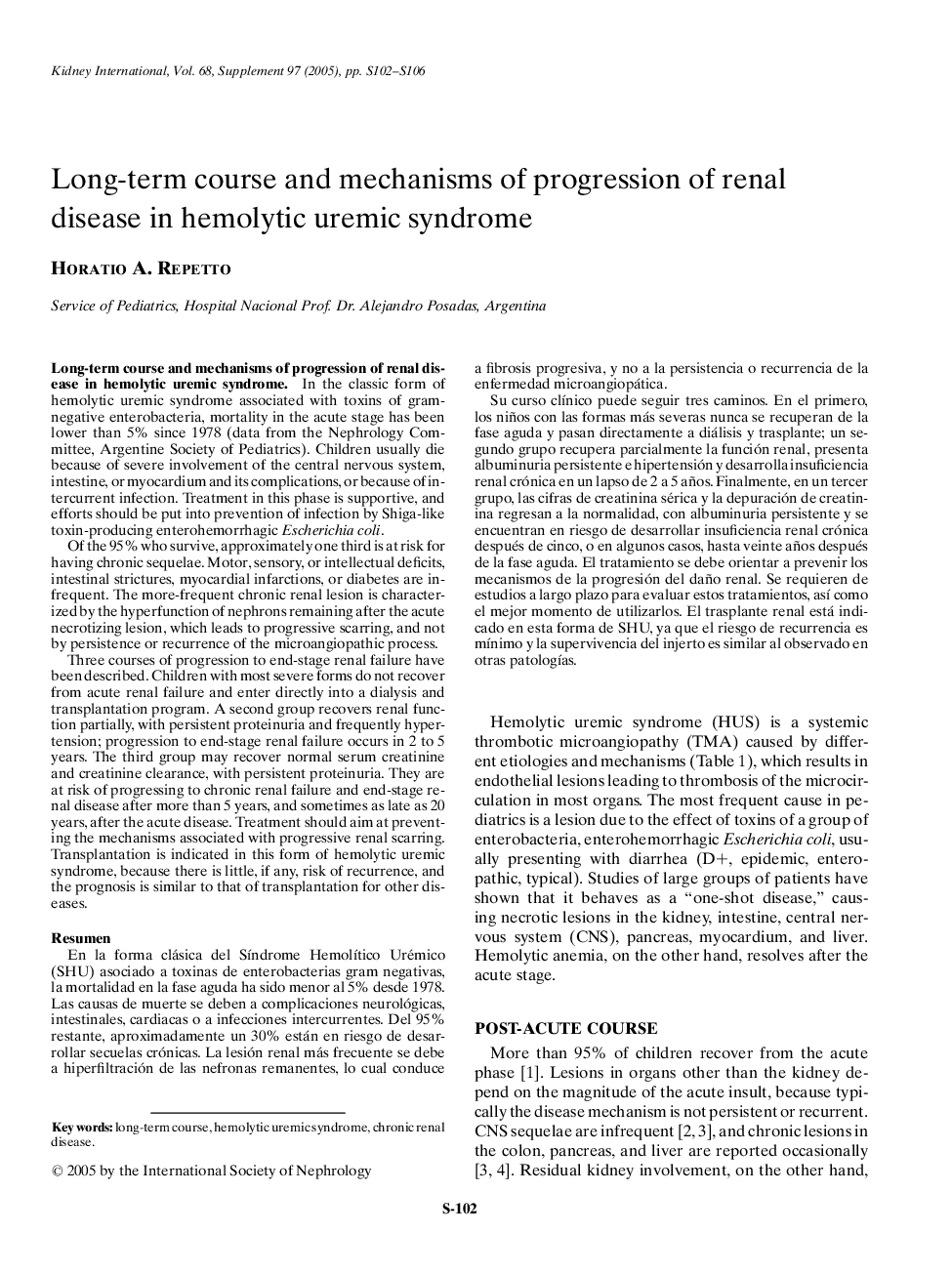| Article ID | Journal | Published Year | Pages | File Type |
|---|---|---|---|---|
| 9310722 | Kidney International | 2005 | 5 Pages |
Abstract
Three courses of progression to end-stage renal failure have been described. Children with most severe forms do not recover from acute renal failure and enter directly into a dialysis and transplantation program. A second group recovers renal function partially, with persistent proteinuria and frequently hypertension; progression to end-stage renal failure occurs in 2 to 5 years. The third group may recover normal serum creatinine and creatinine clearance, with persistent proteinuria. They are at risk of progressing to chronic renal failure and end-stage renal disease after more than 5 years, and sometimes as late as 20 years, after the acute disease. Treatment should aim at preventing the mechanisms associated with progressive renal scarring. Transplantation is indicated in this form of hemolytic uremic syndrome, because there is little, if any, risk of recurrence, and the prognosis is similar to that of transplantation for other diseases.
Related Topics
Health Sciences
Medicine and Dentistry
Nephrology
Authors
Horatio A. Repetto,
